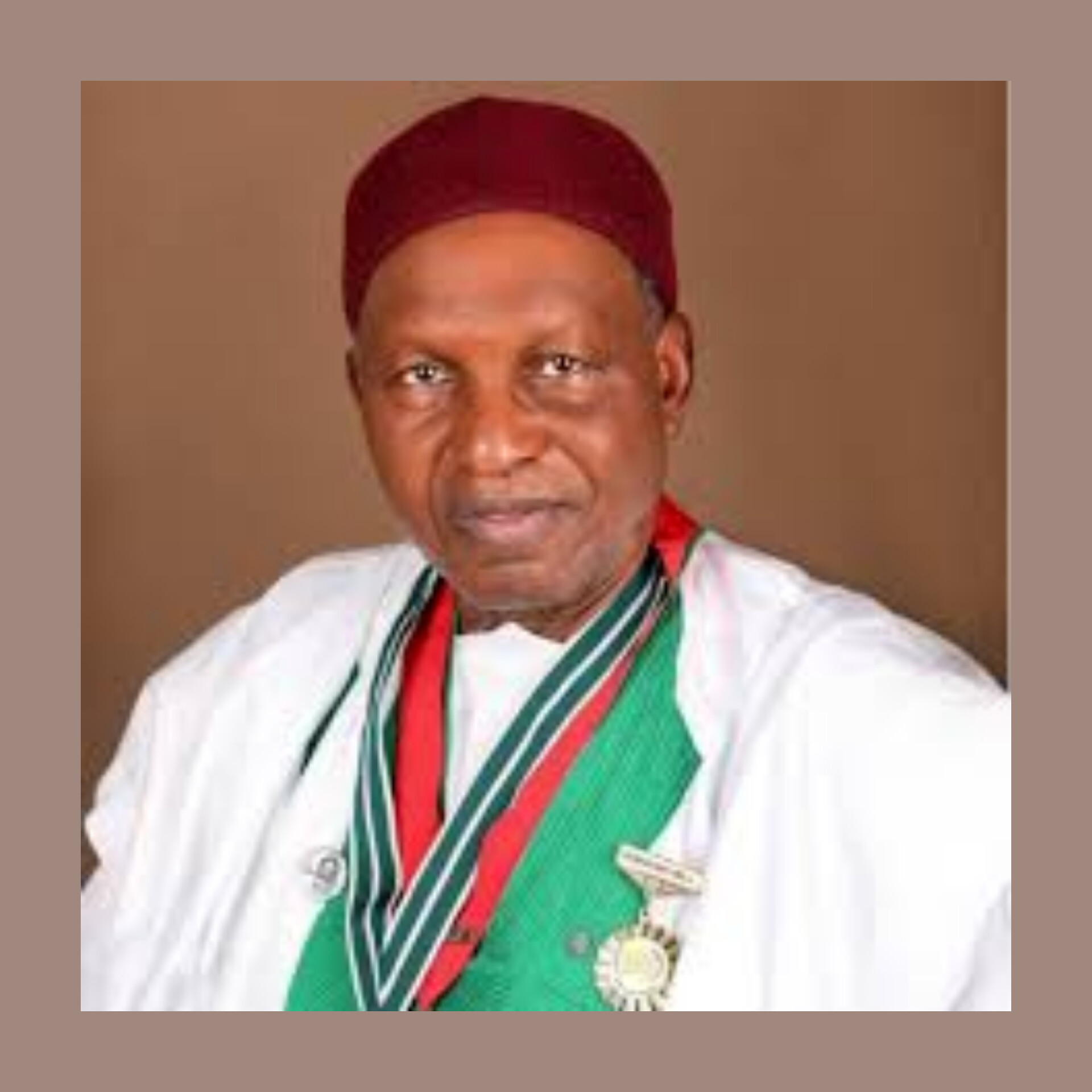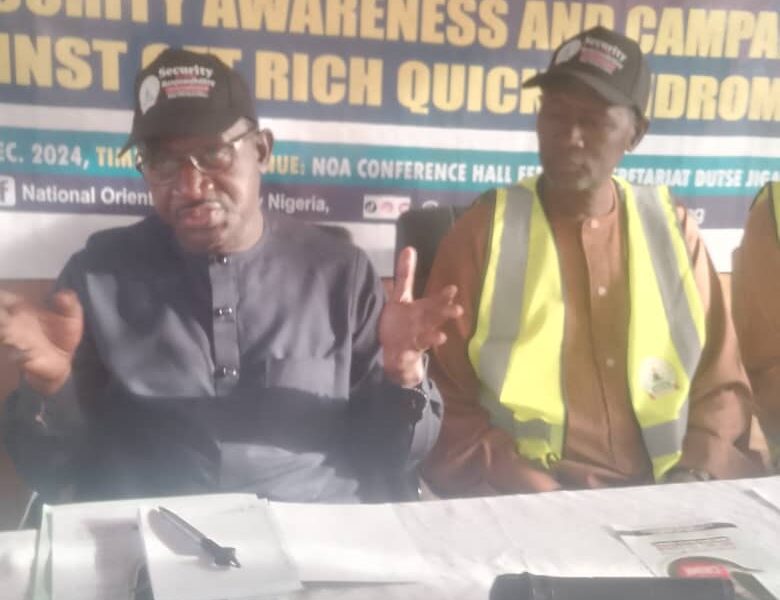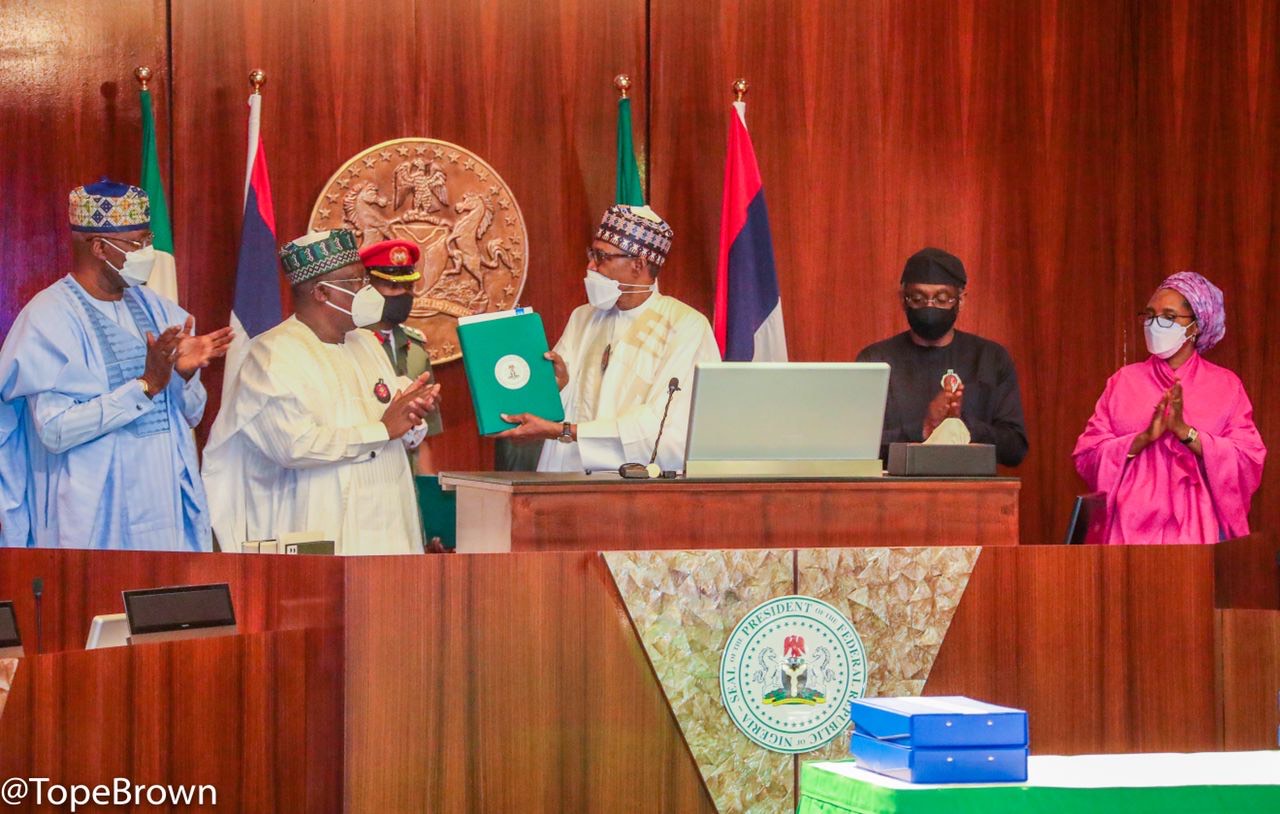**Says Governors have been misappropriating the monies
The Arewa Consultative Forum, (ACF) chairman, Architect Gabriel Aduku has appealed to President Bola Ahmed Tinubu to ensure that the 13% Revenue derivation is not given to States but for communities bearing oil and other mineral resources.
He said the monies should be directly given to the communities instead of their State governments
Aduku who was a former Minister of Health was also an elected member of the Abacha’s Constitutional Conferece between 1994 to 1995 where he was the chairman of the Revenue Allocation committee which was on the schedule.

“So for this particular 13% revenue derivation Formular I will appeal to the president of the country to ensure that the governors have nothing to do with it.
He said, Tinubu who himself is experienced in governance as a two term Governor of Lagos State, a former senator and is a person that has mixed with people to reconsider the implementation and ensure that the host comunities benefit directly.
“The implementation of these should be strictly put together. The governors will have nothing to do with the derivation of thirteen percent fund that is in the constitution, its for all the communities that are affected.
He said the derivation is good but implementation had been the problem. “Many of the governors thereafter saw money and they would look at what to do, they would prefer to do the things themselves rather than give it to the people that are affected for the purpose for which it is derived.
“So that has been wrong, it became a major problem and one of the problems in Nigeria since the 13% revenue derivation came into law during the administration of Obansanjo in particular.
“We have seen what some governors have done with it and it encourages them to aspire to become President of Nigeria since they have money now. They use money making a factor for democracy so unfortunately it’s one of the evils that have eaten up this country.
“But it can be simply managed if only there is sincerely of purpose in the people. So I submit again that the derivation factor is a blessing to Nigerians, and in all other considerations it affects the people, because governance is about the people, not about individuals, how much one can make out of it, or how much their friends made out of it.
He said Implementation of ideas or critical decisions for the progress of this country has been bedeviled overtime and it appears to continue to get worse. “So my candid input is that we should ensure that that particular 13% is allocated to the communities, by identifying the communities and putting an instrument, a management instrument that will be composed of people of integrity within the communities.
“And when they put themselves together they should constitute their leadership themselves, and such leadership can only be supervised by the government of the State and that of the federation on how that resource of thirteen percent is used within the communities.
“The interesting thing is that discussion were taken, we made an agenda for it and more of it was amicably discussion all through.
“Cardinal among the issue is the decision which is the derivation factor. Derivation factor from our search and researches has been on even during the self government of Northern Nigeria, western Nigeria, Eastern Nigeria and so on.
“Derivation were being applied to manage resources. We found out that derivation is important and so it should come to play in what we are doing.
“So in the course of our meetings and so on the 13% derivatives formular became necessary for the areas of oil production of which at that time were mineral contributing States substantially to the nation’s economy.
He said the approval was given and it was organised and members of the committee travelled to the oil bearing areas in Portharcourt in the South South, warri for a physical visit to the sites where we can observe for ourselves the extent of damage the exploration has caused the people, the pollution of the natural water, the danage to the arable lands and so on
He said after their trip they settled to discuss the issue of 13% derivation as basis for revenue allocation.
According to him, the Olu of Warri at that time after they explained their mission to him and what they had done so far, asked what the committee had seen.
He provided an aircraft to come or one of those oil expert to come and take to go and see more.
“That’s how he provided for us and got the oil companies to aid us to see these sites and that’s why we were able to fly over areas where the oil exploitation was carried out, including areas where gas flaring took place and we could see the effect.
“We flew round and in fact came as near as certain points where they were habitations within the area of this gas flaring. We saw people living in some kind of islands on top of the river.
“The effect of the oil was very obvious on the water. So we had the opportunity of seeing quite a bit of what was going on, and it made our discussion a little more fascinating for everyone that was in the committee, in the sense that we could appreciate the difficulties that people who lived in those areas were facing.
“Their water polluted, their atmosphere polluted. So there’s definitely need to take care of these people who by nature are already living in that area. They were pockets of agricultural activities but you could see certain areas where the agricultural activities were also affected by the oil spillage all around.
“This is not to talk of the open naked water that is polluted, and that’s where they drink water from. So we could imagine their difficulties. By the time we came back through Ajaokuta, because the same Olu of warri provided us an aircraft which could land on water and on ground.
“So it was easy for us to come back through Ajaokuta, so we landed on river Niger in Ajaokuta, at the Julius Berger’s port.
“It was amazing for the members. Most of the members had never really travelled South to see things,
not to talk of with an aircraft that lands on water and then goes like a boat to the port, and then drop us and went back.
“By the time we met at Ajaokuta and reviewed the situation in Ajaokuta we could only sympathise that Nigeria has the opportunities, but are we tidying them up?. It made our discussion, again a lot easier with full attention of my members most of the time.
“We got a resolution that says final resolution apart from details. It is to say that for all, the Revenue Allocation will be based on derivation.
“The derivation factor we arrived at was, not less than 13% of the minerals produced in that area which should go back to service the people.
“That is the ultimate aim. Looking at the sufferings of the people. The first set of governors that were to utilise the place was shortly after Abdulsalam’s administrstionAnd when they got in there was derivation factor of course had gone in and it should go to the states that are affected that’s how it was simply put.
Today the surprising thing is that Abacha’s regime was not accorded the opportunity of turning that conference outcome into reality because of the change that occurred. “And we could see that because of the value of that derivation committee work the regime of Abdulsalam decided to extract that portion, and carry on.
“And that is why it is today in the constitution which is being used and of course the normal ammendment today is resolved into the Petroleum bill as we started.
“So the background is very interesting and I’m happy that I chaired that controversial issue and it has become a reality and it should be applied.
“Now Nigeria has a problem as some of us have observed in all sectors the problem of implementation.
Why do we have that? We have loaded ourselves with so much of insincerity and lack of purposefulness of what we are to do to manage our country, we lost it.
“With the insincerity, indiscipline, it has resulted into what we’re having now,Total insecurity that is destroying our development. By the time we analyse this in things that is insincerity, indiscipline that is equating to insecurity, we are not very safe.
“But the intentions have always been there a lot of desires are all in the cupboards of all governments ,but implementation is. So we saw it coming.”
“Today, I find myself in kogi state and I chaired that occasion. Kogi state has become the only state in the North that has been marked as oil producing state after some protractions here and there but at last it is there.
“I would like to give you the insight on how this implementation should be carried out just in the way I have said it.
“We have traditional leadership which was established before the colonial times and we have a head of it of which we call the Atta of Igala. “The area of petroleum that came out is in his domain, Ibaji area, so to say and there are several locations that are very close to it.
“The communities are obvious and whatever derivation comes out of it should directly be used in the interest of the people through the community administration, native authorities administration.
“That is how we grew up, that is how we saw sense in using and enjoying government facilities and caring for it. So the idea of sincerity of purpose has to come into administration of these resources otherwise it can be another blow”




